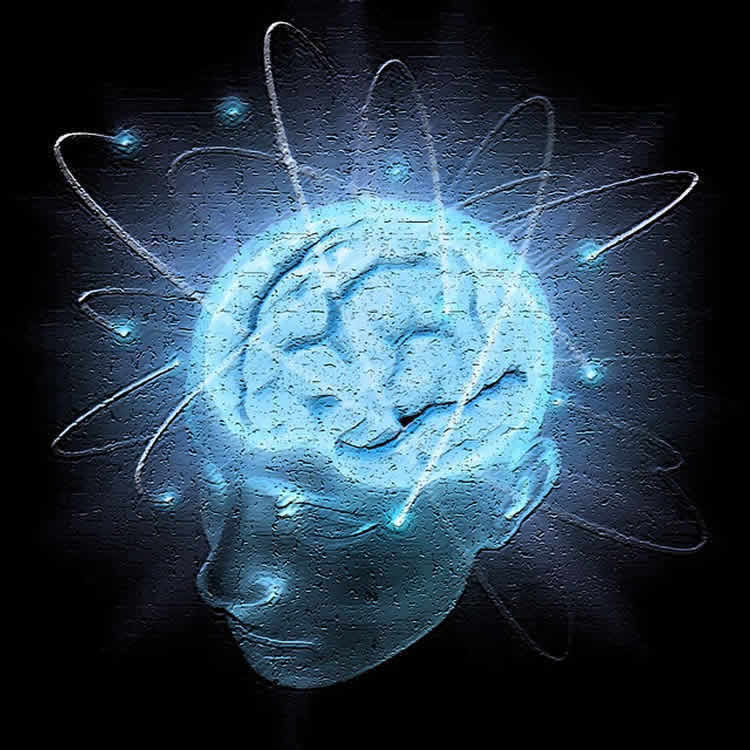Summary: Study confirms the acceptability, feasibility and safety for using Project: EVO, a action video game experience, for children on the autism spectrum with co-occurring ADHD.
Source: CHOP.
Researchers at Children’s Hospital of Philadelphia (CHOP) evaluated a digital medicine tool designed as an investigational treatment for children with autism spectrum disorder (ASD) and co-occurring attention/deficit-hyperactivity disorder (ADHD).
The results of the study, published in the Journal of Autism and Developmental Disorders, confirmed the acceptability, feasibility, and safety of Project: EVO, which delivers sensory and motor stimuli through an action video game experience, designed by Akili Interactive, a prescription digital medicine company.
As many as 50 percent of children with ASD have some ADHD symptoms, with roughly 30 percent receiving a secondary diagnosis of ADHD. However, since ADHD medications are less effective in children with both disorders than in those with only ADHD, researchers are exploring alternative treatments.
Children with ASD and ADHD symptoms are also at high risk for impaired “cognitive function,” including the brain’s ability to maintain attention and focus on goals while ignoring distractions. As children reach school age and beyond, these cognitive impairments make it more difficult for them to set and achieve goals, as well as successfully navigate the demands of day-to-day life in the community.
“Our study showed that children engaged with the Project: EVO treatment for the recommended amount of time, and that parents and children reported high rates of satisfaction with the treatment,” Benjamin Yerys, Ph.D., a child psychologist at CHOP’s Center for Autism Research (CAR) and first and corresponding author on the study. “Based on the promising study results, we look forward to continuing to evaluate the potential for Project: EVO as a new treatment option for children with ASD and ADHD.”

The feasibility study was conducted by a team of researchers at CAR in collaboration with Akili. The study included 19 children aged 9-13 diagnosed with ASD and co-occurring ADHD symptoms. Participants in the study were given either the Project: EVO treatment, which is delivered via an action video game experience, or an educational activity involving pattern recognition. The primary outcome measure for efficacy was the TOVA API, an FDA-cleared objective measure of attention. Key secondary outcome measures were caregiver reports of ADHD symptoms and the ability of the child to plan and complete tasks, as well as a cognitive test battery assessing working memory.
The study found that children adhered to the treatment protocol by engaging with the treatment for 95 percent or more of the recommended treatment sessions. Both parents and children reported that the treatment had value for improving a child’s ability to pay attention and served as a worthwhile approach for treatment. The study also found that after using Project: EVO, children showed a trend toward improved attention on the TOVA API score, and they showed general ADHD symptom improvement based on parent reports. Though the sample size of the study was small, the study showed that using Project: EVO was feasible and acceptable with potentially therapeutic effects. The research team is planning a larger follow-up study for continued evaluation of Project: EVO’s potential efficacy.
Funding: This study was sponsored by Akili Interactive, which provided financial support to Dr. Yerys and co-author Jennifer Bertollo. All other authors were advisers to Akili and participated in study design, data interpretation and manuscript preparation. Co-author Robert Schultz holds stock options for consulting work to Akili, and is also a member of the Scientific Advisory Board of Akili. Co-author Geraldine Dawson is on the Scientific Advisory Board of Akili. Akili participated in the study design but did not participate in the data analysis, manuscript preparation or decision to publish.
Source: Ben Leach – CHOP
Publisher: Organized by NeuroscienceNews.com.
Image Source: NeuroscienceNews.com image is in the public domain.
Original Research: Abstract for “Brief Report: Pilot Study of a Novel Interactive Digital Treatment to Improve Cognitive Control in Children with Autism Spectrum Disorder and Co-occurring ADHD Symptoms” by Benjamin E. Yerys, Jennifer R. Bertollo, Lauren Kenworthy, Geraldine Dawson, Elysa J. Marco, Robert T. Schultz, and Linmarie Sikich in Journal of Autism and Developmental Disorders. Published December 19 2018.
doi:10.1007/s10803-018-3856-7
[cbtabs][cbtab title=”MLA”]CHOP”Video Game Based ‘Digital Medicine’ May Help Children with ASD and Co-Occurring ADHD .” NeuroscienceNews. NeuroscienceNews, 3 January 2019.
<https://neurosciencenews.com/asd-adhd-video-game-10423/>.[/cbtab][cbtab title=”APA”]CHOP(2019, January 3). Video Game Based ‘Digital Medicine’ May Help Children with ASD and Co-Occurring ADHD . NeuroscienceNews. Retrieved January 3, 2019 from https://neurosciencenews.com/asd-adhd-video-game-10423/[/cbtab][cbtab title=”Chicago”]CHOP”Video Game Based ‘Digital Medicine’ May Help Children with ASD and Co-Occurring ADHD .” https://neurosciencenews.com/asd-adhd-video-game-10423/ (accessed January 3, 2019).[/cbtab][/cbtabs]
Abstract
Brief Report: Pilot Study of a Novel Interactive Digital Treatment to Improve Cognitive Control in Children with Autism Spectrum Disorder and Co-occurring ADHD Symptoms
The presence of attention deficit/hyperactivity disorder (ADHD) symptoms in children with autism spectrum disorder (ASD) is associated with worse cognitive control. Children with ASD and ADHD often respond poorly to medications, thus we need alternative treatments. We examined the feasibility, acceptability, and preliminary efficacy of Project Evo—a digital treatment. Nineteen children with ASD and co-occurring ADHD symptoms completed this app-based treatment that targets multi-tasking through gameplay versus a comparison educational treatment. Children had a high engagement with both treatments, and parents and children reported high acceptability. Within-group analyses suggest the multi-tasking but not the educational treatment may improve cognitive control. This multi-tasking treatment is feasible, acceptable, and possibly efficacious for cognitive control impairments in children with ASD and ADHD.






